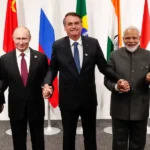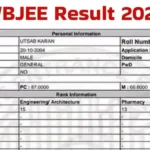US-India Tariff Threat
Nikki Haley criticized President Trump’s US-India tariff threat over India’s Russian oil imports, urging him not to jeopardize ties with a key ally. She highlighted the inconsistency of granting China, the top buyer of Russian oil, a 90-day tariff pause while targeting India. Her remarks underscore the strategic importance of the US-India relationship amid global trade tensions.

Image: NDTV
Nikki Haley’s Call for Restraint
On August 5, 2025, Indian-American Republican leader Nikki Haley openly challenged President Donald Trump’s threat to impose steep US-India tariffs in response to India’s ongoing purchase of Russian crude oil. She posted on X, “India should not be buying oil from Russia. But China, an adversary and the number one buyer of Russian and Iranian oil, got a 90-day tariff pause. Don’t give China a pass and burn a relationship with a strong ally like India.”
Trump had announced plans to “substantially raise” tariffs on Indian goods beyond the existing 25%, citing India’s ties with Russia as support for the Ukraine conflict. Haley, who served as the UN Ambassador during Trump’s first term, emphasized India’s vital role as a democratic partner in the Indo-Pacific region. Her direct warning suggests that singling out India could damage long-standing strategic partnerships, especially as China continues benefiting from tariff leniency.
Trump’s Tariff Threats and India’s Response
Trump’s escalation followed a 25% tariff he imposed on Indian exports in July 2025. He later hinted at another increase within 24 hours but later clarified that he “never said a percentage” for the hike. India’s offer to eliminate tariffs on US goods didn’t satisfy Trump, who argued that India’s 1.75 million barrels-per-day oil imports from Russia still indirectly supported the war in Ukraine.
In response, India’s Ministry of External Affairs (MEA) rejected the criticism. It argued that India’s purchases served national interests, especially after Western suppliers diverted oil exports to Europe. The MEA further pointed out that the US and EU continued to import Russian uranium and fertilizers, making the accusations appear one-sided.
Economic and Strategic Stakes
The tariff threats could undermine the $41 billion trade surplus India currently maintains with the US. Key sectors like pharmaceuticals, which contribute to 37% of Indian exports to the US, may suffer. Additionally, ratings agency ICRA lowered India’s FY26 GDP forecast to 6.0% from 6.2%, citing the risks of disrupted trade. Haley’s remarks align with growing concerns among Republicans that alienating India may weaken US efforts to counter China’s rising influence. She has consistently advocated for deeper US-India ties to strengthen Indo-Pacific resilience.
Read More..- Hiroshima Day 2025 Marks 80 Years of Nuclear Warning
Global Context and Future Implications
Haley also criticized what many perceive as a double standard. While Trump extended a 90-day tariff pause to China—the world’s largest importer of Russian oil—he took a harsher stance on India. His renewed outreach to Chinese leader Xi Jinping stands in contrast to his rigid approach with India.
Meanwhile, Russia has labeled Trump’s tariff threats as “illegal,” and India continues to defend its energy policies as necessary and pragmatic. Haley’s intervention reflects the urgent need for a consistent and balanced US foreign policy, especially as the geopolitical landscape evolves. Maintaining strong US-India relations is not just about trade but also about shared democratic values and mutual security interests.














